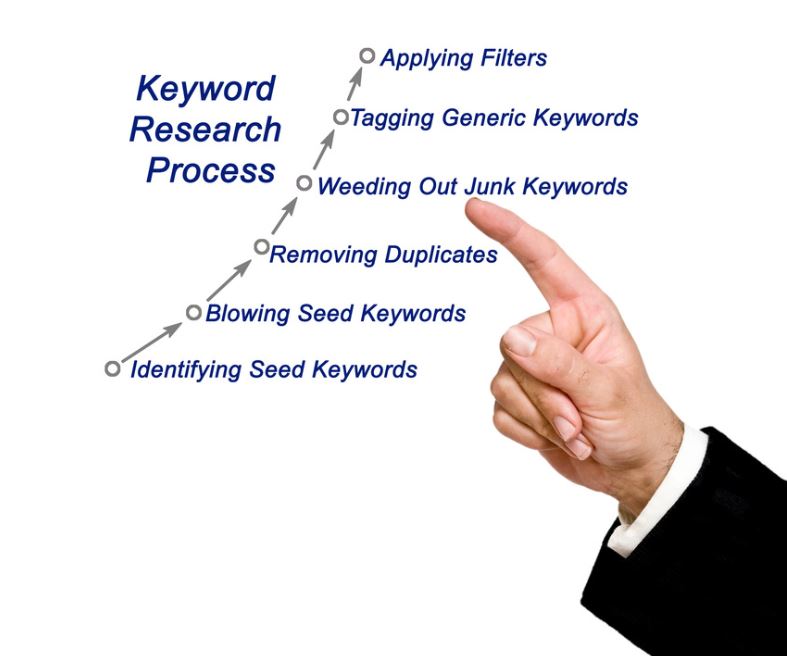Preventing Keyword Cannibalisation: Best Practices for SEO Success

Published On Apr 18,2023
What is keyword cannibalisation?
Keyword cannibalization is a common issue that can negatively impact a website’s search engine optimization (SEO) efforts. It occurs when multiple pages on a website target the same keyword or phrase, leading to confusion for search engines about which page to rank higher in search results.
When multiple pages are targeting the same keyword, it can cause them to compete with each other for the same search engine ranking. This can result in a lower overall ranking for the website as search engines may choose to display only one of the pages or none at all.
Why is keyword cannibalisation bad for SEO?
keyword cannibalisation can be detrimental to SEO because search engines may not know which page to rank for the keyword, leading to a lower overall ranking for both pages. It can also lead to a poor user experience because if multiple pages are competing for the same keyword, users may find it difficult to determine which page to click on or which page is the most relevant to their search query.
How to avoid keyword cannibalisation?
To avoid keyword cannibalization, it’s important to conduct thorough keyword research and ensure that each page on a website is optimized for a unique set of keywords or phrases. This can be achieved by using tools like Google AdWords Keyword Planner or SEMrush to identify relevant keywords and then assigning specific keywords to each page.
Additionally, it’s important to ensure that the content on each page is high-quality, unique, and provides value to users. This can help to establish the page’s authority and relevance for its targeted keywords, increasing the likelihood of it ranking higher in search results.
By avoiding keyword cannibalization and optimizing each page on a website for a unique set of keywords, website owners can improve their website’s SEO and increase their chances of ranking higher in search results for their targeted keywords.
Another way to prevent keyword cannibalization is by using internal linking strategically. By linking related pages together in a logical manner, website owners can help search engines understand the structure and hierarchy of their website.
The importance of monitoring for keyword cannibalisation on your website
It’s also important to regularly monitor website analytics and search engine rankings to identify any instances of keyword cannibalization. If multiple pages are competing for the same keyword, website owners can take steps to consolidate content or adjust the keyword targeting of each page to eliminate the issue.
In addition, website owners can also consider creating a clear content hierarchy that allows users and search engines to easily navigate the website and understand which pages are the most important for specific keywords. This can include creating cornerstone content that serves as a central hub for a specific topic and linking to supporting content on related subtopics.
Overall, keyword cannibalization can negatively impact a website’s SEO efforts, but it can be avoided through strategic keyword research, high-quality content creation, internal linking, and regular monitoring and adjustments. By taking these steps, website owners can improve their website’s search engine rankings and attract more organic traffic to their site.
Another important consideration when it comes to keyword cannibalization is the use of meta tags, including the title tag and meta description. These tags provide a brief summary of the content on a web page and can influence how search engines display and rank the page in search results.
To avoid keyword cannibalization, it’s important to ensure that each page on a website has a unique and descriptive title tag and meta description that accurately reflects the content on the page and targets specific keywords or phrases. This can help search engines understand the relevance and authority of the page for its targeted keywords and improve its ranking in search results.
It’s also important to avoid overusing keywords on a website, as this can be seen as spammy by search engines and negatively impact SEO efforts. Instead, website owners should focus on creating high-quality, relevant content that provides value to users and naturally incorporates targeted keywords and phrases.
- How to Optimize Product Images for Google Search Results [VIDEO]
- Preventing Keyword Cannibalisation: Best Practices for SEO Success
- How to Remove Yourself as a Manager of Someone Else’s Google Business Profile [VIDEO]
- [SEO Course] Introduction to Visitor Metrics and SEO
- [SEO Course] Why Monitoring Your Competitors is a Key SEO Strategy
